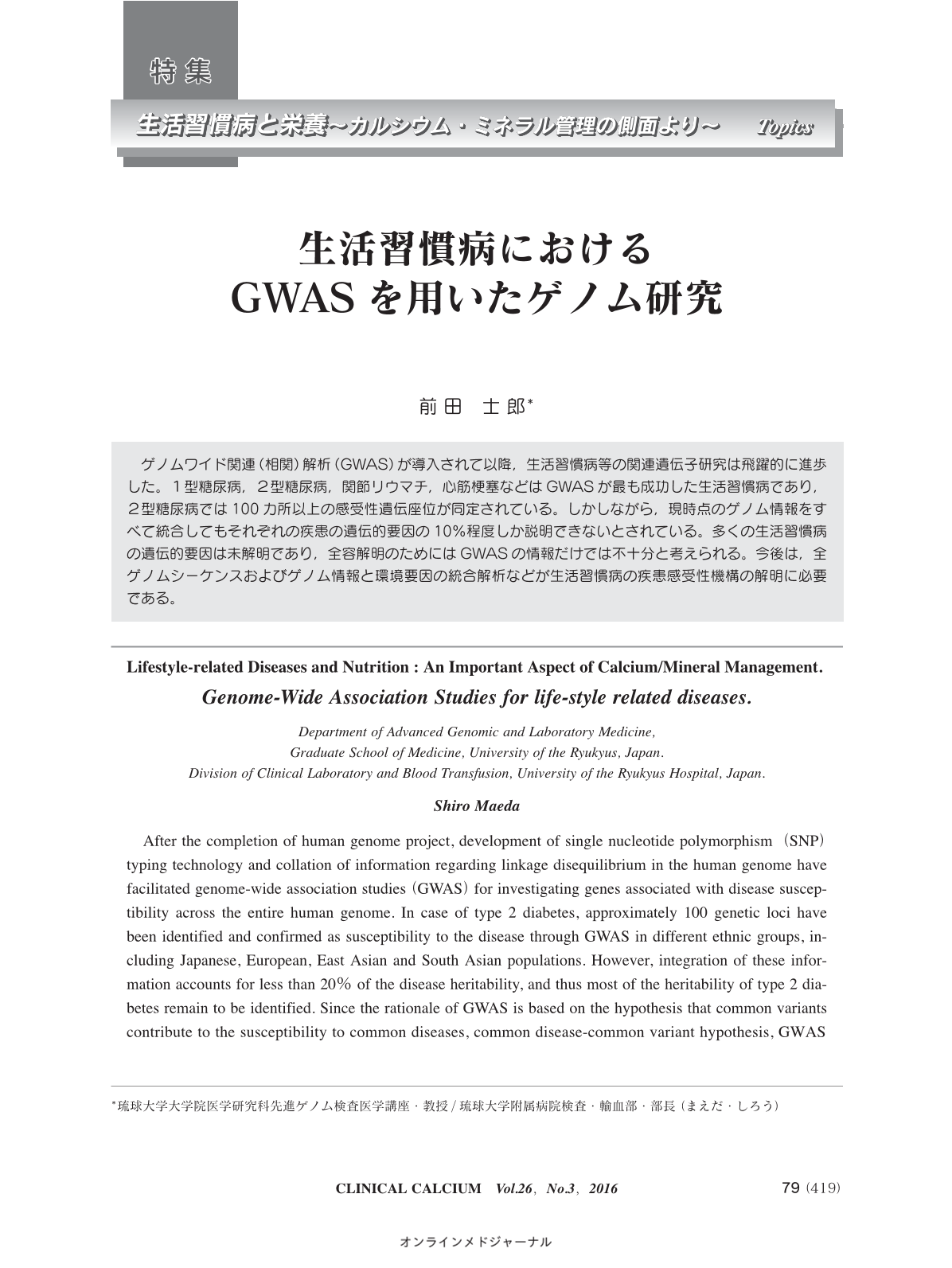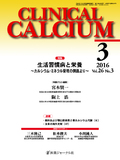Japanese
English
- 有料閲覧
- Abstract 文献概要
- 1ページ目 Look Inside
- 参考文献 Reference
ゲノムワイド関連(相関)解析(GWAS)が導入されて以降,生活習慣病等の関連遺伝子研究は飛躍的に進歩した。1型糖尿病,2型糖尿病,関節リウマチ,心筋梗塞などはGWASが最も成功した生活習慣病であり,2型糖尿病では100カ所以上の感受性遺伝座位が同定されている。しかしながら,現時点のゲノム情報をすべて統合してもそれぞれの疾患の遺伝的要因の10%程度しか説明できないとされている。多くの生活習慣病の遺伝的要因は未解明であり,全容解明のためにはGWASの情報だけでは不十分と考えられる。今後は,全ゲノムシーケンスおよびゲノム情報と環境要因の統合解析などが生活習慣病の疾患感受性機構の解明に必要である。
After the completion of human genome project, development of single nucleotide polymorphism(SNP)typing technology and collation of information regarding linkage disequilibrium in the human genome have facilitated genome-wide association studies(GWAS)for investigating genes associated with disease susceptibility across the entire human genome. In case of type 2 diabetes, approximately 100 genetic loci have been identified and confirmed as susceptibility to the disease through GWAS in different ethnic groups, including Japanese, European, East Asian and South Asian populations. However, integration of these information accounts for less than 20% of the disease heritability, and thus most of the heritability of type 2 diabetes remain to be identified. Since the rationale of GWAS is based on the hypothesis that common variants contribute to the susceptibility to common diseases, common disease-common variant hypothesis, GWAS have selectively identified common susceptibility variants(allele frequency≥0.05)with lower effect size(odds ratio<1.5), that is a limitation of the GWAS approach. Although GWAS have brought a significant breakthrough in the field of genetic study for life-style related diseases, new approaches other than GWAS, such as whole genome sequencing to identify rare variants with greater effect size or integration of genetic and environmental information, will be required to elucidate a heritability of life-style related diseases completely.



